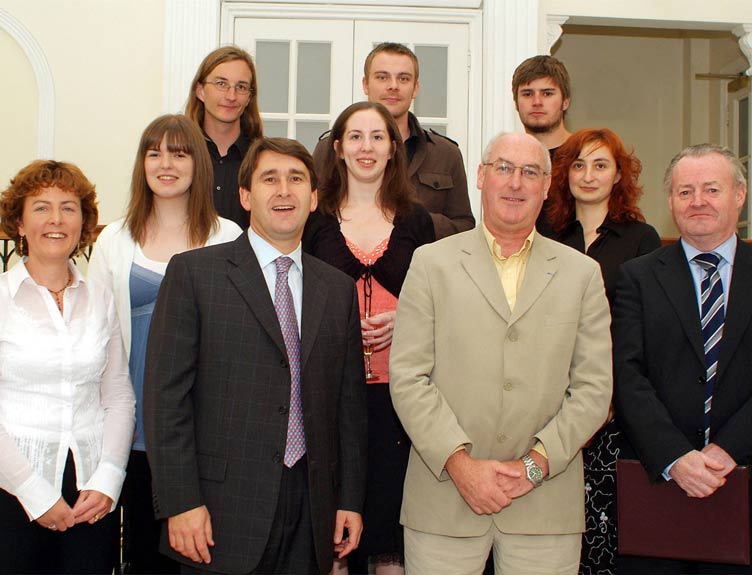RCSI launches new PhD scholars programme

An innovative PhD programme in diagnostics and therapeutics for human disease was launched by RCSI yesterday evening.
Funded by the Health Research Board (HRB) to the value of €5 million, this programme brings together the complementary skills of researchers from RCSI, Beaumont Hospital and Dublin City University (DCU). A total of 28 scholars will join the programme beginning with the first intake of seven Scholars on Monday, 1 October.
These graduates from bioscience, chemistry and engineering backgrounds will receive excellent training in biomedical and translational research, equipping them with skills to become academically qualified investigators capable of conducting clinically relevant research.
PhD scholar programmes are four-year funded courses with generic training components and an individual PhD thesis project. They represent the ideal PhD training opportunity of structured and supported training in a multidisciplinary environment alongside other PhD candidates. The training programme has taught courses mainly in year one and laboratory rotations covering a broad range of research skills before Scholars select their PhD project.
The programme reflects RCSI’s research strategy in translational medicine and the programme includes themes in biomedical diagnostics driven by an established DCU/RCSI partnership and structure-based drug design, which seamlessly integrates with the other themes. An exciting element of the programme is the six-month placement in either industry or an international laboratory depending on the thesis topic, which will be carried out in third or fourth year.
Director of the programme Professor Gerry McElvaney said: “This is a much more structured programme for delivering PhD training and will better address the needs of the scholars and their potential employers, both academic and industrial. Accrued benefits from the programme affecting health and society are the generation of patentable intellectual property outputs with commercialisation potential, although its overriding impact will be in boosting numbers of clinically aware scientists representing the next generation of leaders in biomedical research and translational medicine.”
Professor Kevin Nolan, Head of the School of Postgraduate Studies, said: “This programme provides excellent training for scholars in core research skills. It also facilitates scholar development through professional and career development training. This programme will create a significant cohort of clinically articulate researchers who can communicate their research to a range of audiences, which is so vital in this knowledge-based economy.”
Professor Brian Harvey, RCSI Director of Research, said: “The programme is an exciting development in higher education and reflects RCSI‘s strategy in the application of basic research to clinical problems. An essential component of the training programme is hypothesis-driven laboratory research informed by real-life problems facing medical diagnostics and therapeutics in our hospitals. Our goal is to translate knowledge gained from the research laboratory back to points of clinical care and into the community to improve health.”



